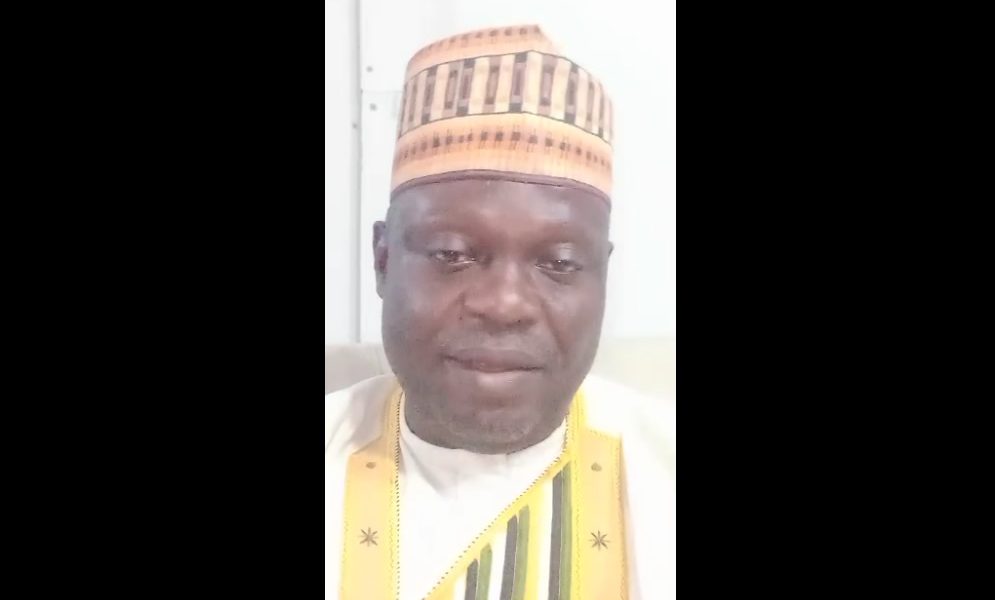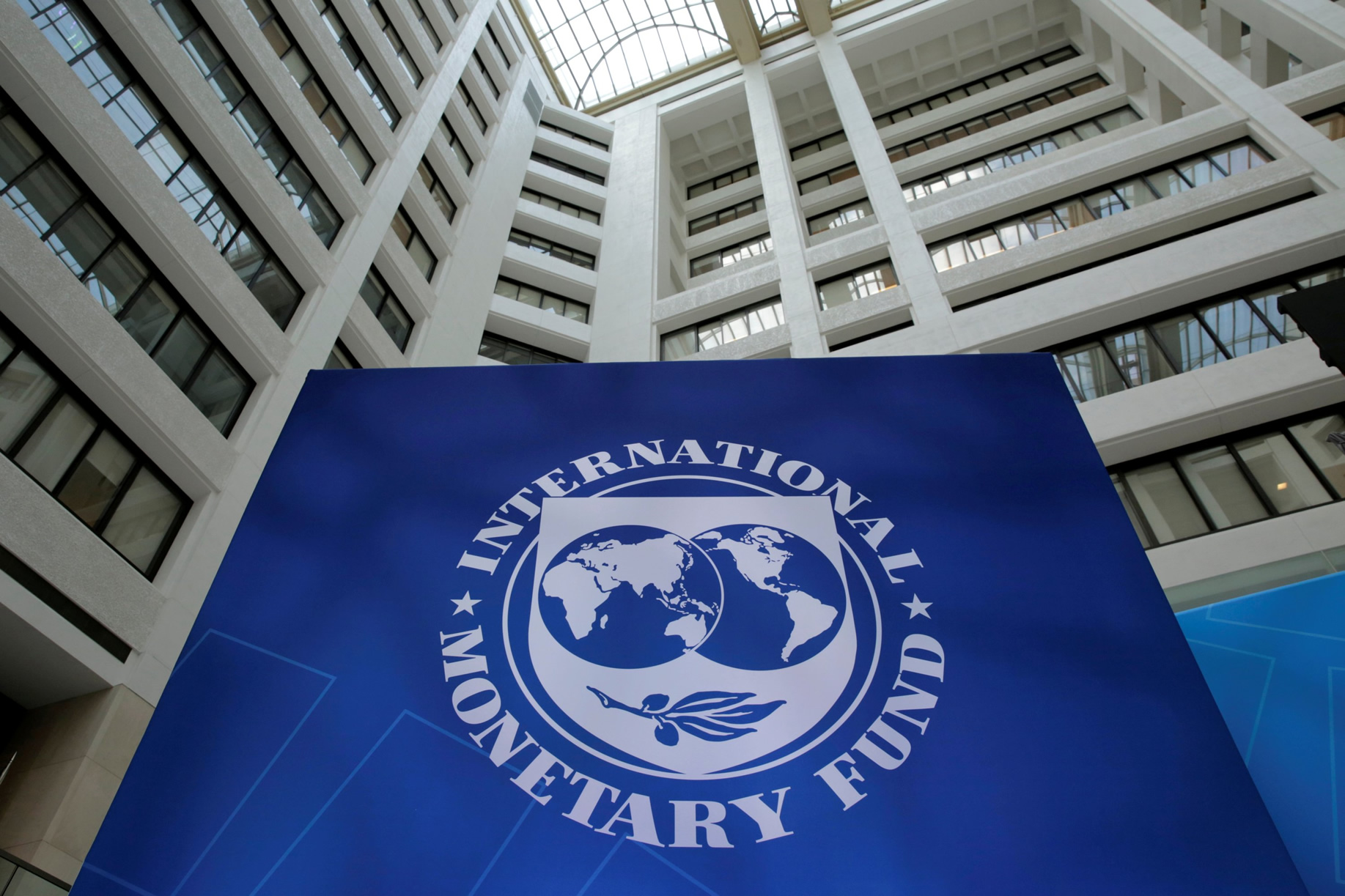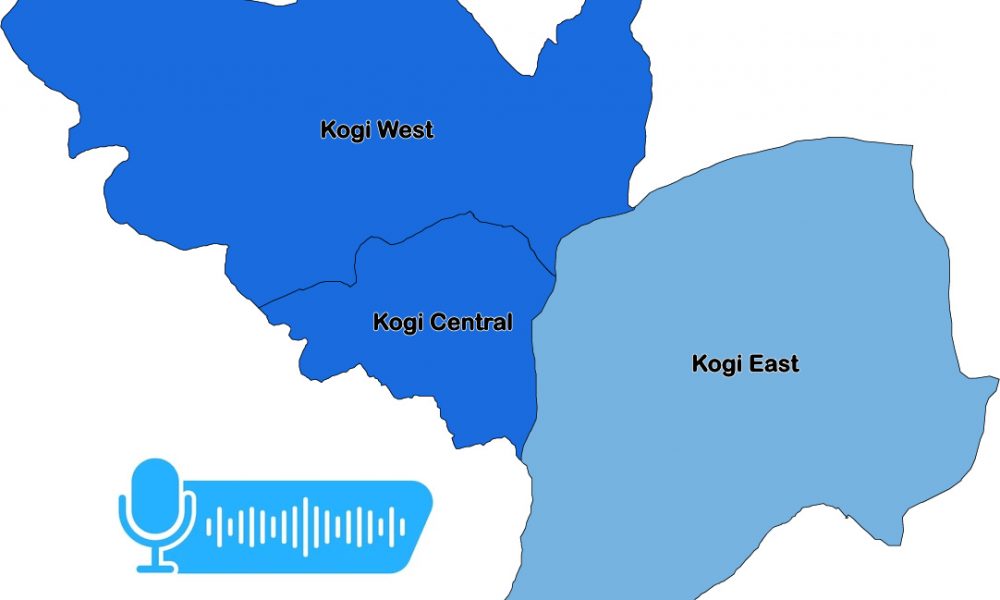Business and Economy
Rising Bank Fraud: Sad Tales From GTB, Ecobank, Polaris, Fidelity, Others

By NGIJ team of Oluwasegun Abifarin, Olawale Abideen and Adeyemi Obadimu
To further promote a cash-less economy and enhance the collection of applicable government revenues, the Central Bank of Nigeria last Tuesday, announced a review of the process for merchant settlement. adsbygoogle || []).push({}); adsbygoogle || []).push({});
With effect from September 17, 2019, the CBN approved for banks to unbundle merchant settlement amounts and charge applicable taxes and duties on individual transactions as stipulated by regulations.
The CBN, in a circular to all deposit money bank also announced the commencement of charges on deposits in addition to already existing charges on withdrawals.
According to the circular, the charges, which took effect from September 18, 2019, will attract 3 per cent processing fees for withdrawals and 2 per cent processing fees for lodgements of amounts above N500, 000 for individual accounts.
Similarly, corporate accounts will attract 5 per cent processing fees for withdrawals and 3 per cent processing fee for lodgements of amounts above N3 million.
The statement, however, disclosed that the charge on deposits shall apply in Lagos, Ogun, Kano, Abia, Anambra, and Rivers States as well as the Federal Capital Territory, while the implementation of the cash-less policy would take effect from March 31, 2020 nationwide.
The Dilemma
To Olusegun Aremu, father of Miss Mary Taiwo, this directive by the CBN is akin to a double jeopardy of rubbing salt to a fresh wound. Their recent experience with internet transaction with Guaranty Trust Bank, GTB is still haunting the memory of both father and daughter.
While Taiwo was looking forward to her admission at a Federal University in one the states in the South West, her father, had deposited N250, 000 in her savings account with GTB domiciled at Ikotun-Egbe, Lagos State, to take care of necessary admission/resumption formalities.
Sorrow and Tears
While Taiwo was waiting for her admission letter, she did not anticipate that tragedy was also lurking in the corner. Precisely on Saturday, 20th of July, 2019, she received a text message supposedly from the bank on her phone to “upgrade some information on her account.” She innocently obliged and that was the genesis of nightmare for the family. Within 18 hours, the entire N250, 000 in the account was transferred to various accounts.
A statement of account she obtained from the bank showed that on 20th July, the sum of N80, 000 was yanked off the account via POS/WEB Purchase Transaction 766634-134659-CASABELLA INTERNATIONAL. The next day, 21st July, there was an NIBSS Instant Payment of N5, 000 Outward to a First Bank of Nigeria, FBN Leramo AKinwumi Olamide. This was followed immediately of another N5, 000 to the same account.
The third transaction of the day was a double transfer of N50, 000 each NIBSS Instant Payment Outward to UBA/ Agbokun Ayoka. This was followed by another transfer of N20, 000; and N10, 000 respectively to the same UBA account of Agbokun Ayoka.
The last tranche of the fraud was a USSD transfer of N20, 000 to Amuokuyo Success Imengowen, leaving a paltry N2, 500 in the account before the girl actually realized what had hit her.
The girl and the family are yet to get over the trauma as the resumption time at the school draws closer. Her complaint at the bank merely received an email sympathizing with her and claiming the account will from now be put on extra security.
“You can see that the announcement by the CBN last Tuesday is just nothing but a sham. How can you say you are encouraging cashless banking when the process is riddled with fraud and scams?” Taiwo’s father told our correspondent last week.
Taiwo’s case is similar to the case of a Pastor in Sango-Ota, Ogun State, who lost about N180, 000 in his account with Polaris Bank in the same manner as Taiwo’s. The case of a young man whose $5,000 was sniffed in his account with a first generation bank in Ikorodu, Lagos State was not less dramatic.
It actually took an invasion of the bank by hired thugs from the young man, which disrupted the operations in the bank before the scam was reversed.
Early this year, the Economic and Financial Crimes Commission, Ibadan Zonal Office, has arrested one Kehinde Agbabiaka, a sales agent with Fidelity Bank Plc, for allegedly diverting N137m belonging to a customer to personal use.
Agbabiaka was supported in the fraudulent act by his bank’s Regional Security Officer and Cluster Control and Compliance Manager.
According to a petition filed against him on August 20, 2019 by the client, Agbabiaka committed the offence between January 2017 and July 2019 when he was the account officer of the victim.
Trouble, however, started when the customer reviewed his statement of account and discovered some discrepancies.
When EFCC investigators stepped into the case after the agency was petitioned, it was revealed that Agbabiaka had used the diverted sum to build houses, purchase cars, invest in fixed deposits and insurance policies.
In the case of Ademola Taiwo, a Police officer, thirty three thousand naira got missing from her Eco Bank account between the 2nd and 16th September, 2019.
According to Ademola’s statement of account obtained from the bank, a particular MTN mobile phone number (08032942510) was used to siphon the money. Ademola explained that she has been using the account for the past 10 years and has been receiving transaction alerts through her mobile phone line.
She added that few weeks ago, the bank stopped sending her alerts and within two weeks that she could not access her account through her mobile phone, N33, 000 was yanked off her account. On approaching the bank, Ademola could not believe what she heard as the Eco bank officials could not explain why she has to lose such amount of money from her bank account.
Banking on Fraud
According to the Nigerian Deposit Insurance Corporation, the insurer of all Deposit Money Banks in the country, a total of 37,817 fraud cases were reported in 2018 against 26,182 in 2017. The amount involved stood at ₦38.93 billion in 2018 compared to ₦12.01 billion in 2017.
The actual amount lost to fraud incidences in 2018, according to the NDIC stood at ₦15.15 billion as against ₦2.37 billion and ₦2.40 billion in 2017 and 2016, respectively.
The rising fraud incidences, investigation revealed, could be attributed to the increase in the sophistication of fraud related techniques such as hacking, cybercrime as well as increase in I.T related products and usage, fraudulent withdrawals and unauthorised credit.
The channels and instruments through which the reported frauds and forgeries were perpetrated indicated that Internet and technology-based sources of fraud had the highest frequency, accounting for 59.2% of fraud cases and 42.83% of the actual total loss suffered.
Meanwhile, the number of ATM/Card-related fraud cases declined from 16,397 in 2017 to 10,063 in 2018. That may be attributed to improved security features of the card as well as security awareness on the part of users. Web-based fraud cases, however, increased from 7,869 in 2017 to 12,343 in 2018.
Enemy Within
Investigation also revealed that a total of 899 staff were involved in frauds and forgery cases in 2018 compared with 320 in 2017. The number of temporary staff involved in fraud was 394, accounting for 43.83% of the total number of staff involved in frauds.
This was followed by Officers and Executive Assistants’ cadre with 206 or 22.91%. Supervisors and Managers accounted for 119 or 13.24% of the total fraud cases.
Other Legs of Fraud
Not a few Nigerians also believe that the Card Maintenance Fee charged by banks is fraud in another name. In the first six months of this year alone, 13 banks raked in 39.5 billion naira from the exercise.
There are currently 27 banks in Nigeria with government licenses, harbouring 112,005,516 accounts as at 31st December, 2018 through recent drive to enhance financial inclusion as well as other social welfare schemes.
As at December 2018, Nigeria’s Total Deposits was reported at 28.7 trillion naira out of which FUGAZ (which is an acronym for FBNH, UBA, GT Bank, Access Bank and Zenith Bank) now have a cumulative total customer deposit of N14.1 trillion.
Remedies
The number of temporary staff involved in fraud and forgery cases had consistently been on the increase. Forensic and security experts agree that the banks and regulators need to address the problem of contract/temporary staff in terms of welfare and permanent employment in view of the risk their current status poses to banks operations.
Furthermore, they advise that banks should strengthen their internal controls and validate their recruitment process.
Long Arm of the Law
The Act establishing the Economic and Financial Crimes Commission, EFCC mandates it to combat financial and economic crimes. The Commission is empowered to prevent, investigate, prosecute and penalise economic and financial crimes and is charged with the responsibility of enforcing the provisions of other laws and regulations relating to economic and financial crimes including:
Economic and Financial Crimes Commission Establishment act (2004); The Money Laundering Act 1995;The Money Laundering (Prohibition) act 2004; The Advance Fee Fraud and Other Fraud Related Offences Act 1995;
The Failed Banks (Recovery of Debts) and Financial Malpractices in Banks Act1994;The Banks and other Financial Institutions Act 1991; and
Miscellaneous Offences Act.
In 2016 alone, the EFCC secured the convictions of 182 fraudsters as follows: Abuja, 38; Lagos, 62; Kano, 34; Enugu, 15; and Port Harcourt, 33
Defending the Rot
Despite Nigerian banks’ huge investment on technology, it is alarming that most banks are still very vulnerable to attacks and financial frauds. None of the banks is ready to admit that customers’ money in their custody is not safe. When confronted by our team on what their banks are doing to secure their customers savings, they tried to dodge the question either by out rightly failed to pick calls or respond to messages sent to their phones.
Some of them also do not want to be quoted claiming that there are “fraudsters everywhere and no matter how hard bankers tried, criminals will always find a way to perpetuate financial crimes”.
For instance, Idoko Negedu who is said to be the Head of Media in Guaranty Trust, after series of failed attempts to seek his views finally agreed to meet NGIJ team last Friday.
However, when the team got to his Lagos Island office, he claimed he is not willing to meet more than one person who had earlier called to schedule the appointment with him. All efforts to convince him that two others are members of the team on the assignment, proved abortive as he maintained that he was not willing to grant media interviews, claiming he is not the spokesman of the bank.
Idoko who wears an apparently arrogant look, frowned at some of the questions posed to him, claiming that the journalists “seem to be interesting in publishing the report rather than cooperating with the bank.”
However, a top official of Ecobank who would not like his name to be mentioned stated that “technology is evolving and as the banks device new technology so as the criminals create new ways to beat it”. The Ecobank official told NGIJ team that “I’m surprise hearing two people can be receiving alerts from a single account.”
Author Profile

- Prince Abdulrahman Obaje is a Media, Information and Computer Technology Consultant. A quintessential Journalist, online marketer, social media strategist, Mathematician and Computer Scientist is based in Abuja, Nigeria. He is the Founder and the Publisher of The Informavores!. You can reach me on +234 805 939 5252 or send i-witness report directly to me on news@informavores.com.ng.
Latest entries
 NewsApril 11, 2024Eid-El-Fitr: ICDA North Central Coordinator Urges Muslim Faithfuls To Abide By Ramadan Lessons
NewsApril 11, 2024Eid-El-Fitr: ICDA North Central Coordinator Urges Muslim Faithfuls To Abide By Ramadan Lessons NewsMarch 20, 2024Investigative Journalists Group, NGIJ Hails Aderinokun on Appointment as Head of Media at Access Corp
NewsMarch 20, 2024Investigative Journalists Group, NGIJ Hails Aderinokun on Appointment as Head of Media at Access Corp NewsMarch 4, 2024ICDA Chairman, Abubakar Sadiq Debunks Rumours of Unpopular Movement, Calls for Prayers
NewsMarch 4, 2024ICDA Chairman, Abubakar Sadiq Debunks Rumours of Unpopular Movement, Calls for Prayers NewsFebruary 23, 2024NGIJ’s Call to President Tinubu: Address Economic and Security Concerns Before Nigerians Take to the Streets
NewsFebruary 23, 2024NGIJ’s Call to President Tinubu: Address Economic and Security Concerns Before Nigerians Take to the Streets
Business and Economy
IMF Predicts Drop In Global Economic Growth In 2023-24

The International Monetary Fund (IMF) has predicts that global economic growth is projected to fall from 3.5 per cent in 2022 to 3.0 per cent in both 2023 and 2024.
This is according to the IMF’s latest World Economic Outlook (WEO) Update Report for July 2023: “Near-Term Resilience, Persistent Challenges” released on Tuesday. adsbygoogle || []).push({}); adsbygoogle || []).push({});
The report said though the forecast for 2023 was modestly higher than predicted in the April 2023 WEO, it remained weak by historical standards.
“Compared with projections in the April 2023 WEO, growth has been upgraded by 0.2 percentage points for 2023, with no change for 2024.
“The forecast for 2023–24 remains well below the historical (2000–19) annual average of 3.8 per cent.
“It is also below the historical average across broad income groups, in overall Gross Domestic Product (GDP) as well as per capita GDP terms. ”
The report also said that advanced economies continued to drive the decline in growth from 2022 to 2023, with weaker manufacturing, as well as idiosyncratic factors, offsetting stronger services activity.
“For advanced economies, the growth slowdown projected for 2023 remained significant, from 2.7 per cent in 2022 to 1.5 per cent in 2023.
“About 93 per cent of advanced economies are projected to have lower growth in 2023, and growth in 2024 among this group of economies is projected to remain at 1.4 per cent.”
While the report said in emerging markets and developing economies, the growth outlook was broadly stable for 2023 and 2024, although with notable shifts across regions.
“For emerging market and developing economies, growth is projected to be broadly stable at 4.0 per cent in 2023 and 4.1 per cent in 2024, with modest revisions of 0.1 percentage point for 2023 and –0.1 percentage point for 2024.”
The report showed growth in Sub-Saharan Africa is projected to decline to 3.5 per cent in 2023 before picking up to 4.1 per cent in 2024.
It revealed that economic growth in Nigeria in 2023 and 2024 is projected to gradually decline, in line with April WEO projections, reflecting security issues in the oil sector.
The report showed that economic growth in Nigeria is projected at 3.2 per cent in 2023 and decline to 3.0 in 2024.
The report said Global headline inflation was expected to fall from 8.7 per cent in 2022 to 6.8 per cent in 2023 and 5.2 per cent in 2024.
“Underlying (core) inflation is projected to decline more gradually, and forecasts for inflation in 2024 have been revised upward. ”
It said inflation could remain high and even rise if further shocks occur, including those from an intensification of the war in Ukraine and extreme weather-related events, triggering more restrictive monetary policy.
The report said financial sector turbulence could resume as markets adjust to further policy tightening by central banks.
“China’s recovery could slow, in part as a result of unresolved real estate problems, with negative cross-border spillovers.
“Sovereign debt distress could spread to a wider group of economies.”
It, however, said on the upside, inflation could fall faster than expected, reducing the need for tight monetary policy, and domestic demand could again prove more resilient.
The report said in most economies, the policy priorities remained to achieve sustained disinflation while ensuring financial stability.
“Therefore, central banks should remain focused on restoring price stability and strengthening financial supervision and risk monitoring.
“Should market strains materialise, countries should provide liquidity promptly while mitigating the possibility of moral hazard.
“They should also build fiscal buffers, with the composition of fiscal
adjustment ensuring targeted support for the most vulnerable.
The report said improvements to the supply side of the economy would facilitate fiscal consolidation and a smoother decline of inflation toward target levels.
NAN
Author Profile
Latest entries
 NewsApril 18, 2024Alleged N80.2billion Money Laundering: EFCC Declares Immediate Kogi Ex-Governor Yahaya Bello Wanted
NewsApril 18, 2024Alleged N80.2billion Money Laundering: EFCC Declares Immediate Kogi Ex-Governor Yahaya Bello Wanted NewsNovember 6, 2023Another Massive Plan By APC To Rig Kogi Election Uncovered!
NewsNovember 6, 2023Another Massive Plan By APC To Rig Kogi Election Uncovered! Food and AgricultureAugust 1, 2023Food Security: FG Started The Distribution of Subsidised Farm Inputs to Small Holder Farmers
Food and AgricultureAugust 1, 2023Food Security: FG Started The Distribution of Subsidised Farm Inputs to Small Holder Farmers PoliticsAugust 1, 2023PEPC: PDP Atiku Appears As Parties Set To Adopt Written Addresses
PoliticsAugust 1, 2023PEPC: PDP Atiku Appears As Parties Set To Adopt Written Addresses
Business and Economy
Debt Servicing: Gombe State Govt Spent N33bn in 4 Years – Transition Report

- N6 billion for settlement of four years backlog of gratuities owed retirees from 2014 to 2017
The Gombe State Government has paid about N33billion from the N100bn debt inherited from the administration of former governor Ibrahim Dankwambo. adsbygoogle || []).push({}); adsbygoogle || []).push({});
The Chairman of the Gombe State Transition Management Committee, Dr Ibrahim Daudu, made this known while submitting the 2023 transition report to Gov. Inuwa Yahaya on Monday.
Daudu said that Gov. Yahaya also paid N6 billion to settle four years backlog of gratuities owed retirees from 2014 to 2017.
According to him, the payment to retirees is the largest payment of gratuity made by any government in Gombe State.
“During the course of our work, we were able to determine that out of over N100 billion in debt inherited from the previous administration, your administration has paid approximately N33 billion,” he said.
The chairman also stated that the state government within the period was able to attract N26 billion as a result of its prudent public financial management through the implementation of the State Fiscal Transparency, Accountability and Sustainability programme.
He said that in view of the state’s prudent resource management, Gombe State ranked fourth most successful state in public financial management in the country.
While commending Yahaya for effectively managing the finances of the state in spite of the huge economic challenges caused by COVID-19 and economic recession, the Daudu-led committee urged the government to boost the state’s internally generated revenue going forward.
The 11-member committee which was inaugurated on May 26 further advised the state government to within the next four years, reform the civil service while prioritising job creation.
The News Agency of Nigeria (NAN) reports that the major responsibilities assigned to the committee was to develop a blueprint for consolidating on the achievements made during Yahaya’s first administration.
Also, to incorporate lessons learned, identify priorities, policies, and programmes for the new administration.
Author Profile

- Prince Abdulrahman Obaje is a Media, Information and Computer Technology Consultant. A quintessential Journalist, online marketer, social media strategist, Mathematician and Computer Scientist is based in Abuja, Nigeria. He is the Founder and the Publisher of The Informavores!. You can reach me on +234 805 939 5252 or send i-witness report directly to me on news@informavores.com.ng.
Latest entries
 NewsApril 11, 2024Eid-El-Fitr: ICDA North Central Coordinator Urges Muslim Faithfuls To Abide By Ramadan Lessons
NewsApril 11, 2024Eid-El-Fitr: ICDA North Central Coordinator Urges Muslim Faithfuls To Abide By Ramadan Lessons NewsMarch 20, 2024Investigative Journalists Group, NGIJ Hails Aderinokun on Appointment as Head of Media at Access Corp
NewsMarch 20, 2024Investigative Journalists Group, NGIJ Hails Aderinokun on Appointment as Head of Media at Access Corp NewsMarch 4, 2024ICDA Chairman, Abubakar Sadiq Debunks Rumours of Unpopular Movement, Calls for Prayers
NewsMarch 4, 2024ICDA Chairman, Abubakar Sadiq Debunks Rumours of Unpopular Movement, Calls for Prayers NewsFebruary 23, 2024NGIJ’s Call to President Tinubu: Address Economic and Security Concerns Before Nigerians Take to the Streets
NewsFebruary 23, 2024NGIJ’s Call to President Tinubu: Address Economic and Security Concerns Before Nigerians Take to the Streets
Business and Economy
Euromoney Awards: GTBank Ranked Best Bank in Nigeria

Guaranty Trust Bank Ltd. has been ranked the”Best Bank in Nigeria” at the Euromoney Awards for Excellence 2023.
The bank said in a statement on Monday that the latest recognition underscored the bank as the leading financial institution in Nigeria. push({}); adsbygoogle || []).push({});
Announcing the award, Euromoney said: “Nigeria’s best bank, Guaranty Trust Bank, has continued to do a good job of convincing investors that it is better placed than its key competitors to deal with the risks ahead and perhaps to take advantage of opportunities in economic and policy transition.
“Despite a difficult operating environment, the bank continues to deliver exceptional results as the flagship franchise of Guaranty Trust Holding Company Plc.
“It recorded a profit before tax of N214.2 billion, pre-tax return on Equity (ROAE) of 23.6 per cent, and Cost to Income Ratio (CIR) of 48.0 per cent for the period ended, Dec. 31, 2022.”
Euromoney is an authority for global banking and financial markets and the annual awards for excellence, celebrates financial institutions that demonstrate leadership, innovation, and resilience in the markets they operate.
Commenting on the award, Mrs Miriam Olusanya, Managing Director of Guaranty Trust Bank Ltd., said, “we are honoured to be named the Best Bank in Nigeria by Euromoney.
“This recognition reflects our unwavering commitment to the values of excellence and innovation which form the bedrock of our value proposition as an institution and has guided the mother-brand to achieve remarkable success for over 30 years.
“As part of a thriving financial holding company, we will continue to prioritise service delivery and innovation whilst maintaining our strong financial performance,” she said.
Author Profile
Latest entries
 NewsApril 18, 2024Alleged N80.2billion Money Laundering: EFCC Declares Immediate Kogi Ex-Governor Yahaya Bello Wanted
NewsApril 18, 2024Alleged N80.2billion Money Laundering: EFCC Declares Immediate Kogi Ex-Governor Yahaya Bello Wanted NewsNovember 6, 2023Another Massive Plan By APC To Rig Kogi Election Uncovered!
NewsNovember 6, 2023Another Massive Plan By APC To Rig Kogi Election Uncovered! Food and AgricultureAugust 1, 2023Food Security: FG Started The Distribution of Subsidised Farm Inputs to Small Holder Farmers
Food and AgricultureAugust 1, 2023Food Security: FG Started The Distribution of Subsidised Farm Inputs to Small Holder Farmers PoliticsAugust 1, 2023PEPC: PDP Atiku Appears As Parties Set To Adopt Written Addresses
PoliticsAugust 1, 2023PEPC: PDP Atiku Appears As Parties Set To Adopt Written Addresses









